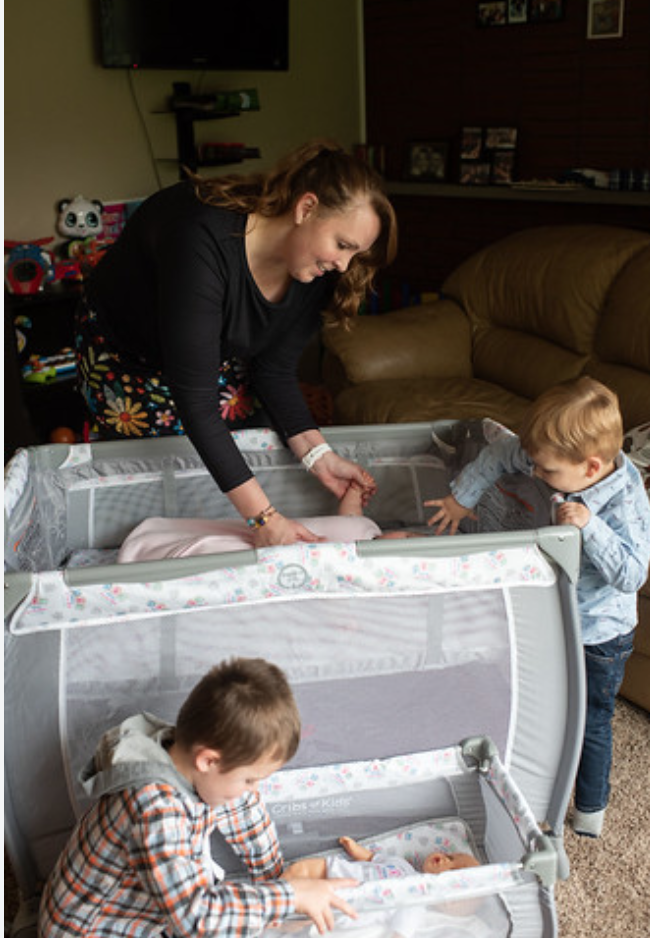Repaying Sleep Debt as a New Parent
updated, Aug 1, 2023 – Sleep debt is defined as the difference between the amount of sleep you should be getting and the amount you actually get. Parents of newborns realize that sleep deprivation is something that comes with the territory but every time you miss out on sleep, you add to the debt. Over time this debt builds up and can lead to both mental and physical health issues. This blog, Repaying Sleep Debt as a New Parent tells how you can get back your health and wellness.

Sleep Debt- The Facts
It’s important to note that short term loss of sleep is sometimes part of life. We all go through times where we don’t get a solid night’s sleep, such as during the newborn phase and it’s important to catch up on sleep when we can. However, long term sleep deprivation isn’t something humans easily bounce back from. Cognitive and metabolic function deteriorates and sometimes these functions don’t come back to our baseline level.
Repaying Sleep Debt as a New Parent
Research shows that a combination of naps and overnight recovery sleep can be effective in counteracting some negative effects of sleep deprivation. However, one or two nights of substantial sleep aren’t enough to fully pay off a long-term sleep debt. What does this mean for parents of single babies and twins?
A 2010 study conducted by acclaimed British sleep scientist Iftikhar Mirza found that during a child’s first 2 years of life, new parents miss out on an astonishing total of 6 months worth of sleep! Sleep deprivation can lead to poor eating habits, mood swings, arguments, adversely affect your performance at work and can make getting behind the wheel very dangerous.
How to Minimize Your Sleep Debt
While there are no perfect foolproof solutions, here are some practical ways for new parents to minimize their sleep debt:
- Switch nighttime duties with a partner or caregiver. If possible, alternate nights or times of night between one partner sleeping and the other is “on call.” If nursing, mom can breastfeed and partner can do the diaper changes and soothing. Other options are for Mom to pump during the day and having partner give baby a bottle or supplement with formula overnight. Work with your lactation consultant or pediatrician to figure out what is best for you.
- Get regular exercise. Exercise releases endorphins, increases healthy energy levels and lowers the risk of mood swings. Even if you are too tired, gentle exercise during the day, such as walking or yoga, can increase sleep.
- Do not consume too much food or alcohol before bedtime. Eating or drinking too much in the evening can over stimulate the digestive system and interfere with natural sleep rhythms, particularly reducing reduces rapid eye movement (REM) sleep.
- Ask for help! It is important to rely on family members, friends, babysitters, night nurses, etc. for help. There is nothing wrong with having another person tend to the baby or household tasks while you catch up on much needed rest if it will make you a better, more attentive parent.

Being a new parent is tiring, especially for those in the postpartum phase recovering from childbirth. IT IS OKAY to have dirty dishes and unfolded laundry. New parents, especially breastfeeding mothers, need their energy and while you may feel like you are missing out on “getting things done,” you will actually be catching up on something very important…repaying your sleep debt.
Categories
- Corporate Care & Partners
- COVID19 Archive
- En Espanol
- Expert Guides
- Hiring a Night Nanny
- Infant Safety
- Infant Sleep Hub
- Newborn Care
- Postpartum Health
- Twins & Multiples
- Work as a Night Doula
- zPost Archives
